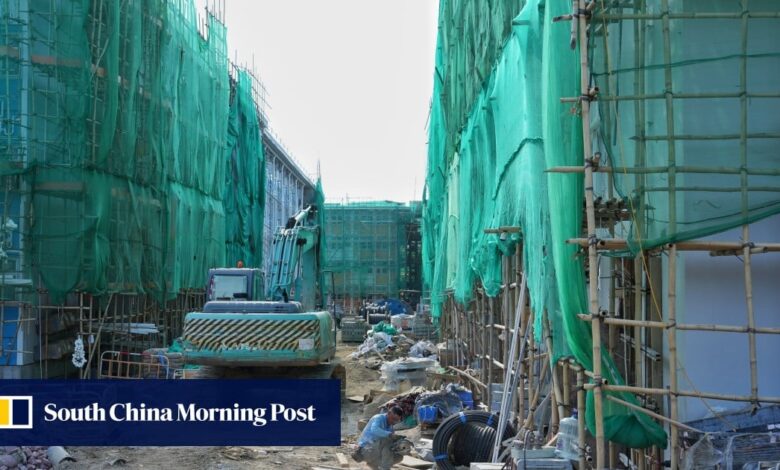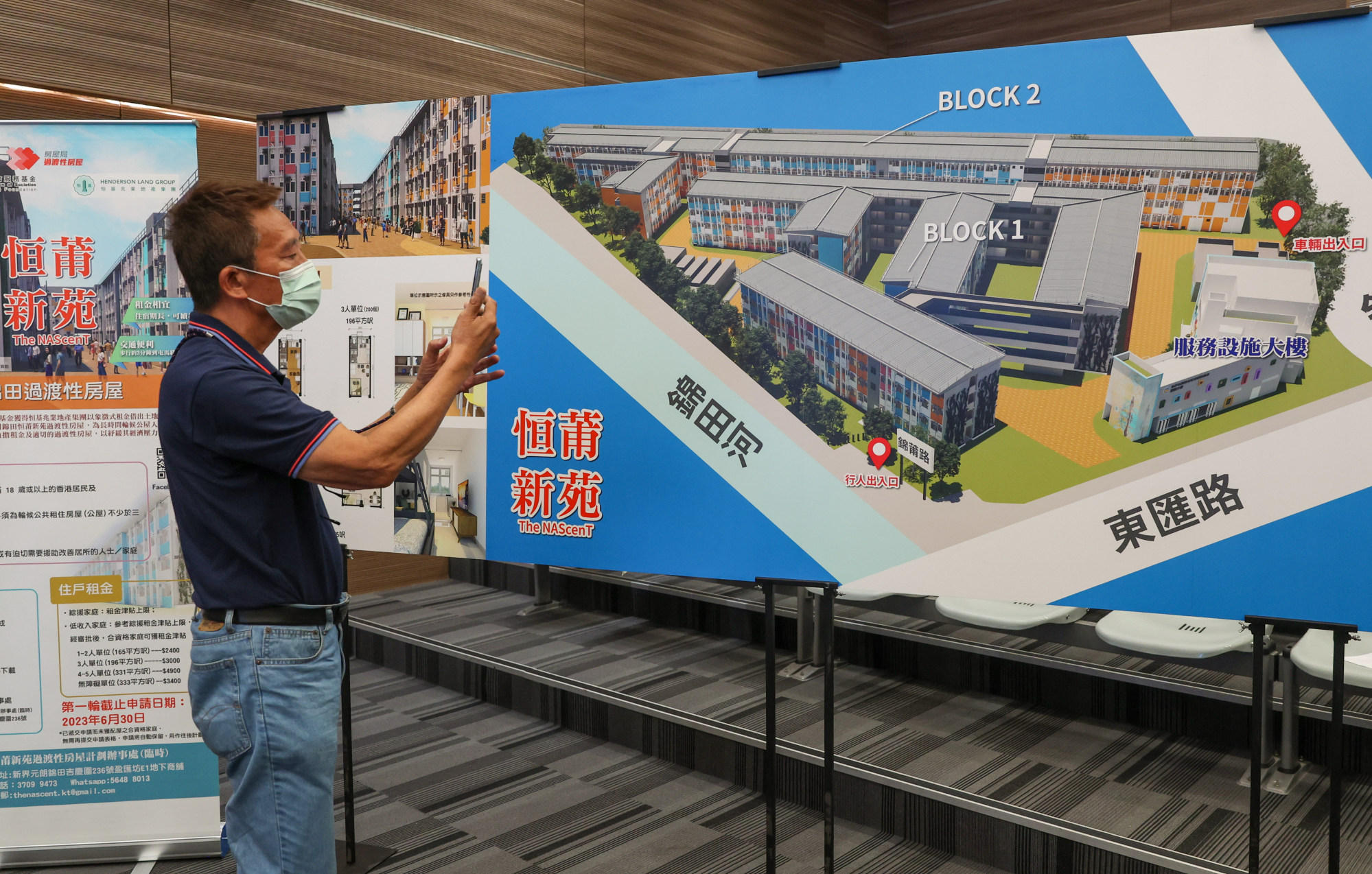‘Severely mouldy’: Hong Kong housing chief criticises contractor over transitional homes project where rainwater has leaked into hundreds of flats

[ad_1]
Hong Kong’s housing chief has criticised a contractor of a foundation run by a pro-Beijing group for “poorly” managing the construction of a government-subsidised transitional homes project where rainwater has leaked into hundreds of flats, damaging at least 50.
Secretary for Housing Winnie Ho Wing-yin on Sunday reassured the public that the more than 1,000 transitional homes for the project, known as “The NAScenT”, would be delivered on time. But she questioned the quality of work performed by Shui On Building Contractors, which had been hired by the New Territories Association of Societies (Community Services) Foundation.
“The contractor and its suppliers managed some aspects poorly,” she said in response to media questions at a public event to promote transitional housing, adding authorities were closely monitoring repairs the company promised to carry out over the issues at the New Territories site.
Hong Kong developer, NGO team up to offer transitional flats to low-income families
Hong Kong developer, NGO team up to offer transitional flats to low-income families
The government granted the foundation HK$576 million (US$73.6 million) in public funds to deliver and manage 1,028 transitional units in Kam Tin, which were scheduled for completion in the final quarter of this year.
But 219 flats, or about one-fifth, have been hit by rainwater leaks since April. The contractor said 58 of those flats had become “severely mouldy” as a result.
“The contractor is taking full responsibility and promised to complete the project and the [repair works] simultaneously before they are ready. We will closely follow up on this,” Ho said.
The homes are built using the “modular integrated construction” technique, which employs free-standing, integrated modules from a mainland Chinese factory that undergo quality inspections before being installed at the project site.

Ho explained problems in packaging could lead to rainwater leaking into the cubicles in the delivery process, allowing mould to build up over time. She said workers could have also forgotten to close the windows of the units, causing rainwater to seep in.
About 60 per cent of the affected units had been repaired, and around 80 more flats were likely to need fixes, Ho said.
“I have confidence that the contractor will strike a balance and the repair will not affect the rest of the construction.”
The foundation hired the contractor, which is part of Hong Kong-listed builder SOCAM Development, in July last year to design and build the project.
Hongkongers in transitional housing to get one-off allowance of up to HK$11,550
Hongkongers in transitional housing to get one-off allowance of up to HK$11,550
Clement Lui Kin, director of the charity, said the damage had mainly been caused because the roof covering the affected blocks had yet to be completed and the waterproof packaging was insufficient to protect cubicles from the rain.
“The 58 mouldy units have to get their ceilings, walls and floors replaced,” Lui said, adding that they also had to finish rust-prevention works.
He said the water seepage issue had been fixed as the roof was completed in August. Repairs are expected to be finished before the end of this month.
The contractor had offered a warranty period of a decade instead of a year for the affected flats, he said.
The transitional housing scheme is part of the government’s initiatives to help households that have waited for a public rental flat for more than three years, and other low-income residents.

The housing chief on Sunday said there were 7,800 transitional homes in the city at present and another 13,200 would be available by the end of next year.
Ho said sites in urban areas had an occupancy rate of more than 90 per cent, while those in the New Territories exceeded 87 per cent.
She added that some projects had a turnover rate of 110 per cent, with some residents having moved to public housing.
The Housing Bureau will launch a centralised platform for the transitional flats programme on Monday, which will allow applicants to apply online.
Authorities have increased promotion for the flats after some projects in rural areas were earlier found to have low occupancy rates of about 60 per cent.
The average waiting time for public rental housing stood at 5.3 years, as of the end of June.
[ad_2]
Source link





